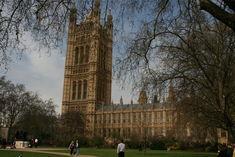
The new Chancellor of the Exchequer has failed to make a decisive move in the debate over the future of the controversial Air Passenger Duty (APD).
George Osborne delayed the decision over APD in the Emergency Budget as businesses waited on the announcement on how the government will plug the deficit in the UK economy.
Osborne said he would report back in the autumn on whether to scrap the tax and replace it with a per plane duty.
Airfreight businesses in the fresh produce industry fear that the proposals could put further pressure on an industry crippled by recent strikes, weather problems and recession.
The per plane duty taxes the plane rather than the passengers, which critics said is both fairer and more environment-friendly but airfreight businesses argue it is unfair to tax freight forwarders on flights that may go ahead with just passengers on them.
Elsewhere in the Budget, Osborne announced that he hopes to recoup £8 billion per year from net tax increases. This includes an increase in the main standard rate of Value Added Tax (VAT) to 20 per cent and the standard and higher rate of Insurance Premium Tax (IPT) to six per cent and 20 per cent from 4 January 2011.
The Budget document also outlined plans to cut DEFRA’s resources from £2.5bn to £2.4bn.